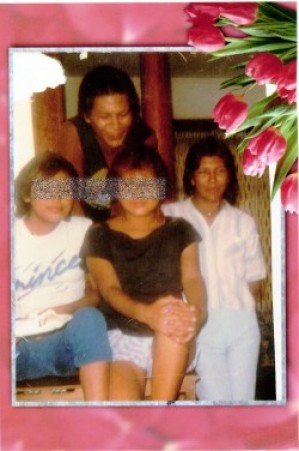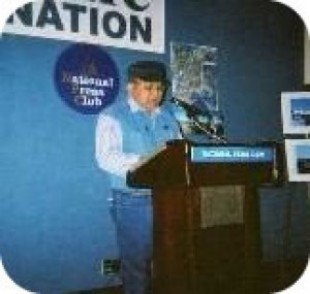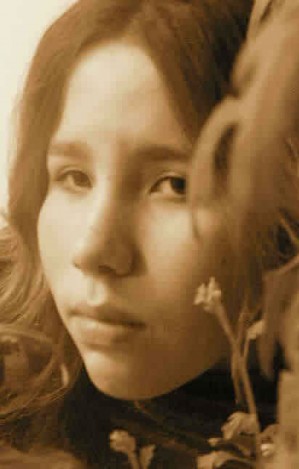 This is a brief version of our story.
This is a brief version of our story.
3 years ago, the day before Thanksgiving we met the most beautiful child. He was in a foster home because his birth mother had left him at 3 months at the home of who she thought was his birth father. That young man was found not to be the birth father when the County stepped in to provide services. They removed Tyler from this man’s home (this young man lived with his mother). The man who raised him from 3 months to 8 months was found to be violent and aggressive and unfortunately is back in Tyler’s life. (more on that).
We had finished the paperwork and homestudy and were looking to adopt a Native American child as I am Native American myself. So my tribe called and said they had an 11 month boy who was ready to be adopted. We wanted a child that needed a home. We had no idea what would happen next.
The mother resurfaced to have her 3rd child and the county made her have visitations with Tyler. He had no idea who she was and it was difficult but she soon gave up the visits and canceled and eventually did not even show up for visiting. She has never said she wanted him back.
ICWA (Indian Child Welfare Law) is meant to protect children especially before there were laws to protect mothers and babies before 1973. But unfortunately the ICWA law is phrased to protect the tribes and not the children. This is the law that we are going to Washington D.C. to lobby to get changed to protect children and not tribes.
The birth mother has a relative (Great-Half Aunt) and this relative has never been in her life but became involved in this particular ‘family’ to protect the yet unproven birth father. This relative’s husband is the Tribal Chairman and she abused the power of the tribe to take these children back and to reunify the birth mother with her 3 children. We started our legal battles in February 2008 and they continue today. There is no one and nothing we have found we can do but try and help him through appealing court decisions.
We had Tyler in our home for 5 months when on a Friday in May, 2008 at 9pm the relative and a social worker from the tribe appeared at our door step with the police to take our little guy away. Our lawyer fought to stop them but no one wanted to interpret tribal law vs. State law and we were forced to turn him over in his pajamas to these people.
A month later when we were trying to stay in contact the relative said we could visit him. When we went to visit she said they could not control him and the mother wasn’t wanting to raise her children and asked if we would take him back. We visited for the weekend and arranged to take him back in June , 2008. We were no longer the Foster parents we just had a tribal court order saying he was placed with us.
We spent the next 6 months fighting to keep him and protect him. We followed all the requests the tribe made of us to have him visit. The birth mother was not around she had taken off and not returned to the tribe. During this time she became pregnant with her 4th child in 4 years and committed a felony.
Unfortunately in December, 2008 the tribal court (which if you don’t know consists of a judge appointed by the Tribal Chairman who does not need any legal background or even any schooling beyond a high school diploma to be a judge) ruled in favor of the relative and said that our Tyler should be reunited with his 8 day clean mother.
Two days after Christmas, they came on Saturday morning and took him away. He had just celebrated his second birthday and his second Christmas with our family in Colorado. The screams as they took him away will not go away. I hear them everyday and I try to put them out of my head but still each day I hear him scream “No, Mama, No!” I couldn’t protect him. And I am a member of this tribe. The Tribal Chairman is my first cousin (his mother and my father are brother and sister). But he is married to the woman who started this.
Where we are today 2 years later: The birth mother is in prison and has been since last December 2009. The man that the County took Tyler from was the boyfriend when the mother was arrested last year so the tribe granted him guardianship of 3 of the 4 children. He is not Tyler’s birth father, he is not a relative and he is NOT Native American. He is also participating in illegal activities and the situation is not good for any of the children.
We are fighting to appeal the rulings. We have been fighting ever since. Unfortunately Tribal Sovereignty allows the Tribe to do what they want and not look out for the children. We were granted liberal and reasonable visitations. Because he wants to go home and hung on for a very long time asking to go home so they have not granted us visitations. We have seen him once in two years. Last October 26 at a McDonald’s. When I picked him up and told him I loved him he said “I wub you.” That is all I have left.
Newest Updates:
Birth Mother has been released to tribal custody for extensive monitoring from the State Prison. Somewhere around Christmas she was sent back up to the reservation.
I have also contacted the man who has been watching our Tyler (who is not the father). He and I talked for almost 20 minutes about 3 weeks ago. He was going to let us see Tyler but then the birth mother was released and she is still having issues related to her Aunt who started this process who told her to be fearful of us trying to take him. So unfortunately, despite my attempt to talk to him, we did not get to see Tyler.







